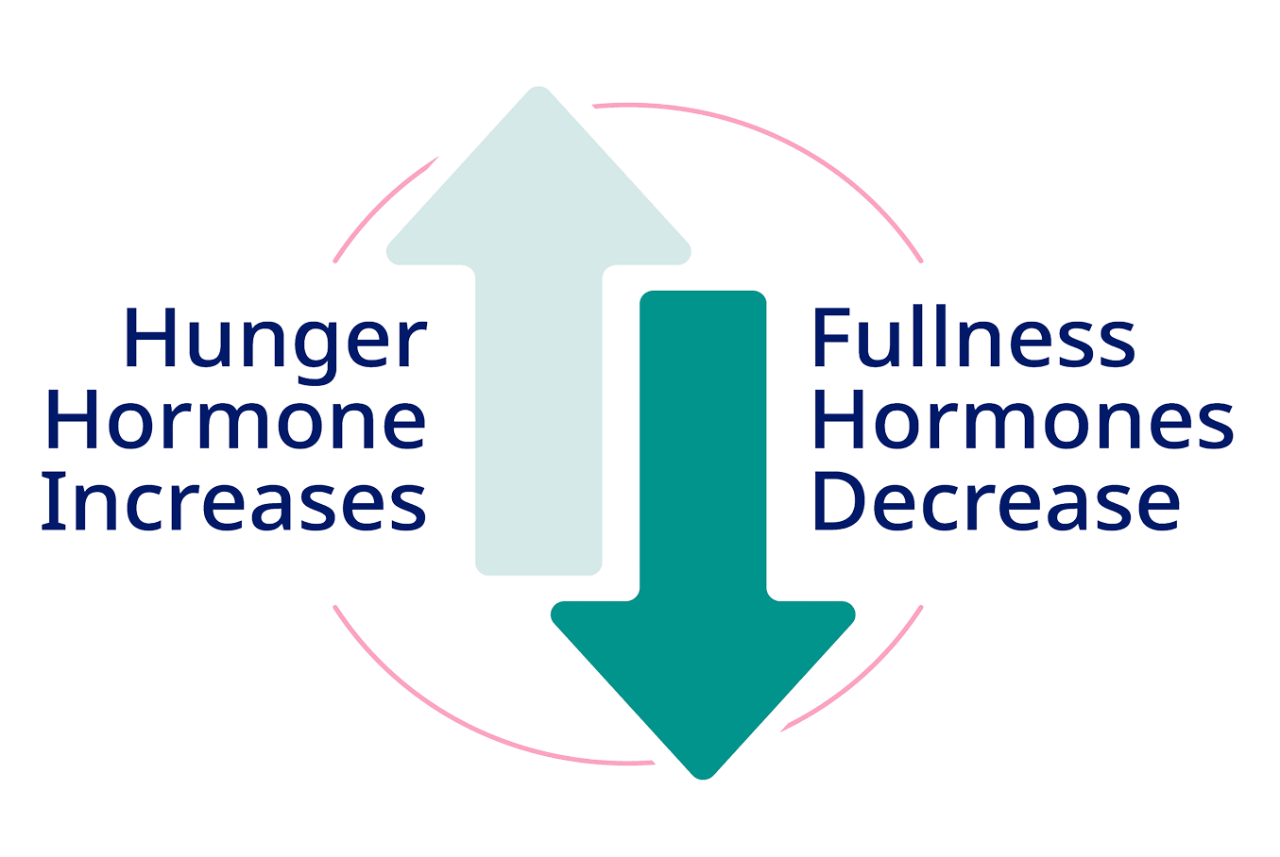Your body’s response to weight loss makes it hard to maintain your progress
The tug-of-war of weight management
Losing weight and maintaining it is hard because of how the body responds to weight loss: After losing weight, the body tries to put it back on. While healthy eating and increased physical activity are important, for many people they may not be enough to keep the weight off.
Why is it so hard to keep the pounds off? Well, there’s more to weight management than meets the eye. People may see results when they limit calories, by reducing the size of meals, for example. And find ways to increase physical activity, like taking regular walks around the block. Science has shown the body responds in surprising ways when a person loses weight. It reacts to weight loss by trying to regain weight, making weight management a constant tug-of-war. Metabolism slows down and gets more efficient, requiring fewer calories to do its job. Hormonal signals can also change. The body increases a hunger hormone, called ghrelin, which tries to get you to eat more calories. And the hormones that tell the brain it’s time to stop eating, the “feeling full” signals, decrease. These are just some of the factors that make weight regain so common.
Following weight loss, the body’s metabolism slows down and appetite hormones change—making you feel more hungry and less full.
Appetite hormones in the body can make weight management as challenging as actually losing the weight.

“When I found out that science defines obesity as a disease, and it was not my fault, it was such great joy.”
—Reneé
Paid Novo Nordisk patient ambassador
Passionate Journaler, Gospel Singer
Did you know the brain is responsible for when and why we eat?
It’s true. All day, the nervous system, which includes the brain, receives signals about appetite from hormones that come from different parts of the body, like the stomach, intestines, and fat tissue. Both the brain and these appetite hormones contribute to what, why, and how much we eat.
Remember the appetite hormones we talked about earlier? For people trying to lose weight and maintain it, changes in these hormones after weight loss can make things tricky.
That’s because after we lose weight by eating fewer calories, our levels of appetite hormones, including peptide YY (PYY), cholecystokinin (CCK), glucagon-like peptide-1 (GLP-1), amylin, insulin, and leptin, can change and contribute to weight regain.


Start the conversation
Not sure how to ask about weight management? Our step-by-step guide helps you document your weight history, current efforts, and future goals. Complete your report and take it to a health care professional.




